Are you a camping enthusiast and looking for the most comfortable ways to sleep in a tent? We have got you covered! Our ultimate camping guide comfortably will provide you with all the essential information and valuable tips to make your next camping trip stress-free and enjoyable. We understand it’s important to be well-rested on the trail, so let us help you get the best out of your tent experience. With our guide, prepare for the coziest and most comfortable nights while sleeping in a tent!
Ways To Sleep Comfortably In A Tent
- Invest in a good sleeping pad or mattress and a warm sleeping bag – A good sleeping bag should keep you comfortable at temperatures between 32-50 degrees Fahrenheit, while a thick air mattress or inflatable bed will make the ground feel softer. If you’re camping in really cold weather, you may want to invest in a bag specifically designed for cold weather conditions.
- Choose your spot wisely – Try to pick an area that is relatively flat and free of rocks and roots. You can always bring along some camping pads, foam mats, or even blankets if needed to give yourself an extra layer of comfort. Also avoid spots near water because it tends to be colder and more humid there.
- Pack versatile items – A versatile bag liner or quilt can help keep you warm and dry during cold, damp evenings. If you don’t have one of these, a scarf or blanket can be used to provide extra warmth. And ensure to pack some earplugs in case your campsite is noisy at night.
- Arrange the tent carefully – Place your sleeping pad or mattress on top of a tarp before putting it inside the tent. This will create an extra layer between you and the ground and help protect against water damage. Make sure that all of your items are neatly organized so that there’s plenty of room for movement in the tent while you’re sleeping.
- Use pillows and cushions for extra comfort – If you don’t have a camping pillow, you can use rolled up clothes or a stuffed bag for cushioning. You can also bring along some additional cushions and blankets for added warmth and softness.
By following these tips, you’ll be well on your way to sleeping comfortably in your tent each night.
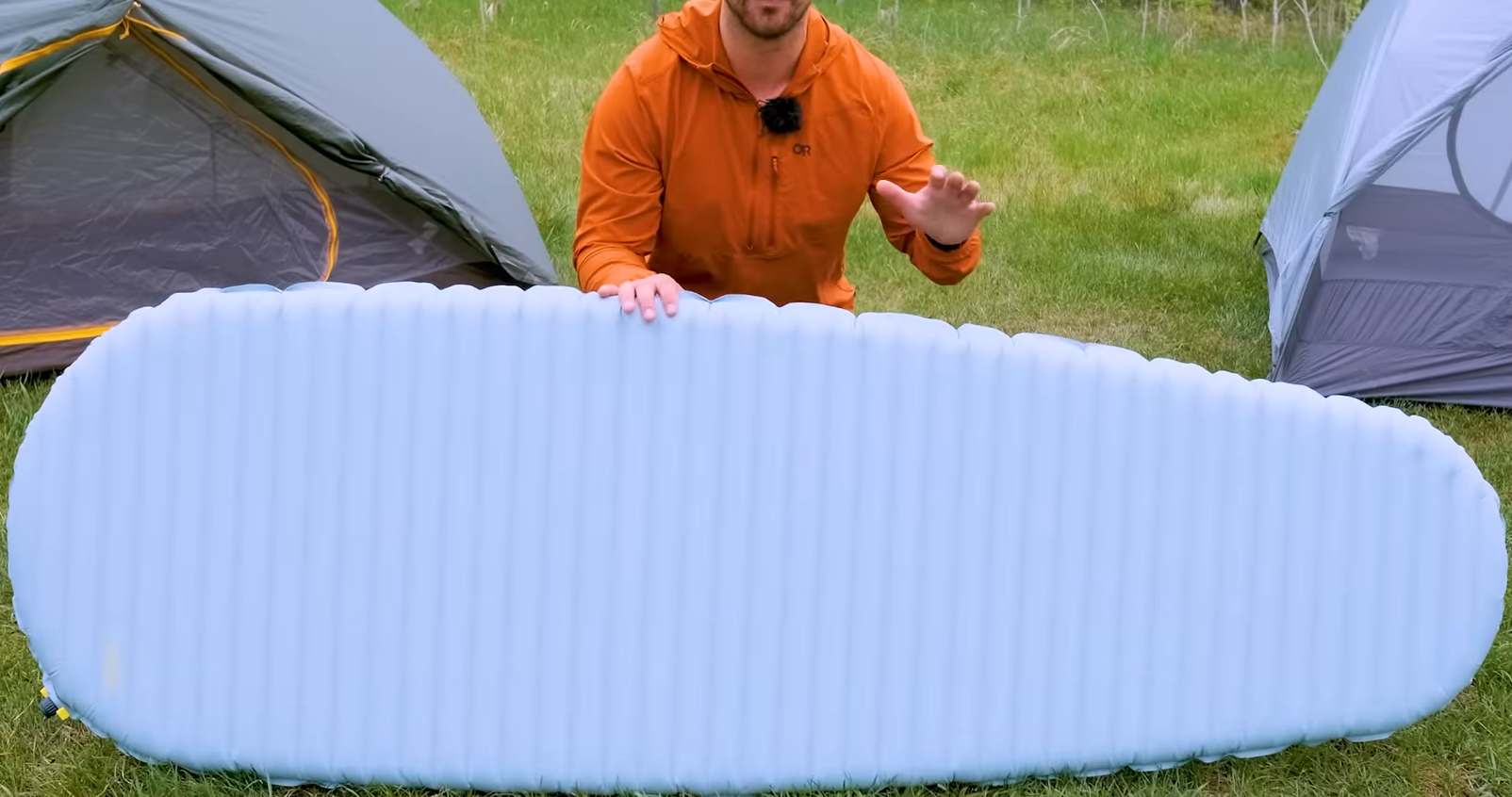
Choose The Right Tent
Choosing the right tent is the first and foremost step while setting up tent camping. You must find a comfortable tent setup that allows you to sleep comfortably without compromising on safety, privacy, and convenience. Consider factors such as size, shape, and features when selecting your ideal tent for sleeping in. Make sure it has enough space for you to stretch out and move around easily in the night.
Choose The Right Mattress
When it comes to sleeping in a tent, the most important factor is your mattress. When choosing a mattress for your tent, consider its size, weight and thickness. Be sure to pick one that is rated for outdoor use. Most mattresses are made of foam or air-filled cells, just like those used in regular beds. Foam mattresses tend to be more comfortable but may not provide as much support as air-filled versions do.
Finally, be sure to bring along plenty of pillows and blankets for extra comfort. Investing a bit more into these items will help ensure that you stay warm and cozy throughout the night! Now you’re ready to sleep comfortably in your tent!
Bring Lots Of Warm Blankets & Pillows
One of the essential steps to having a comfortable night’s sleep in a tent is making sure you have enough blankets and pillows. Ensure your sleeping bag is good quality and rated for the climate you’ll be camping in, but it doesn’t hurt to bring some extra layers. Blankets are especially helpful if you’re camping in colder climates because they provide added warmth and insulation. Pillows are essential for comfort, so bring some from home or buy some lightweight travel pillows specifically designed for camping.
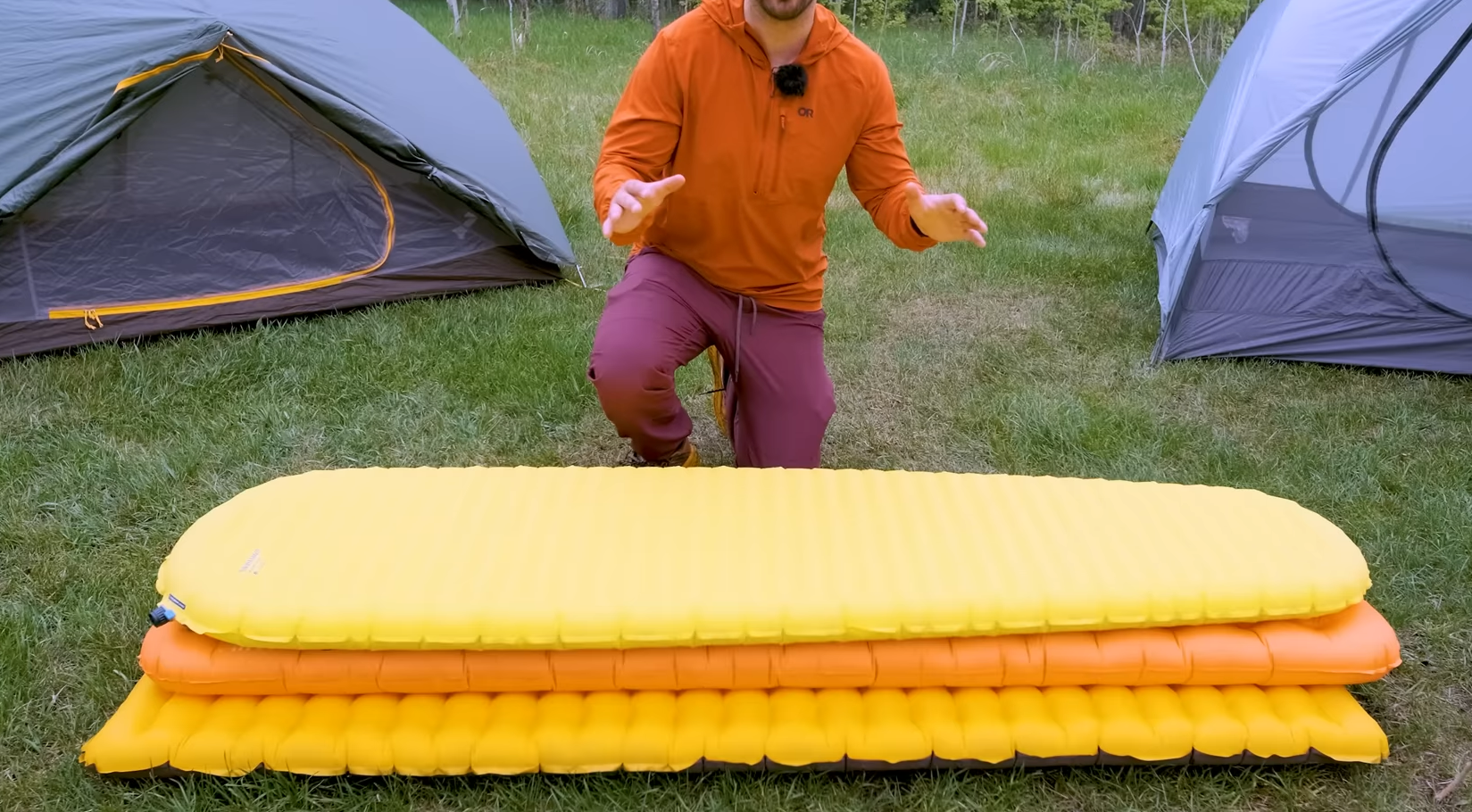
Wear Comfortable Clothing
It’s important to wear comfortable clothing when sleeping in a tent. Ensure you’re wearing something loose and breathable, such as sweatpants or shorts. Also, if possible, bring an extra pair of socks. Additionally, wearing a hat will help keep your head warm and regulate your body temperature better.
Pick The Perfect Location To Pitch Your Tent
The first step in having the most comfortable sleep in a tent is to ensure that you have chosen the perfect spot to pitch it. Pick a flat, clear area with good drainage and away from any low-lying areas prone to flooding. You also want to make sure that there are no sharp rocks or sticks underneath where you will be laying down your tent, as they can cause discomfort when lying on them.
In addition, if possible try and find a location that has access to natural shade such as trees or bushes. This will help keep you cool during the hot summer months and warm during the cold winter nights. Finally, consider the wind direction around your campground — set up your tent so that it faces away from the prevailing wind. This will help to keep your tent stable and make sure that you have a nice, calm sleep even if the wind is blowing hard.
Following these tips should ensure that you have picked the perfect spot for pitching your tent and will provide a comfortable night’s rest!
Bring Bug Repellent
When you’re camping, bugs can be an annoyance. Make sure to bring insect repellent with you so that you can keep them away and have a comfortable night’s sleep. You can also buy mosquito nets to hang around your tent if the insects get really bad.
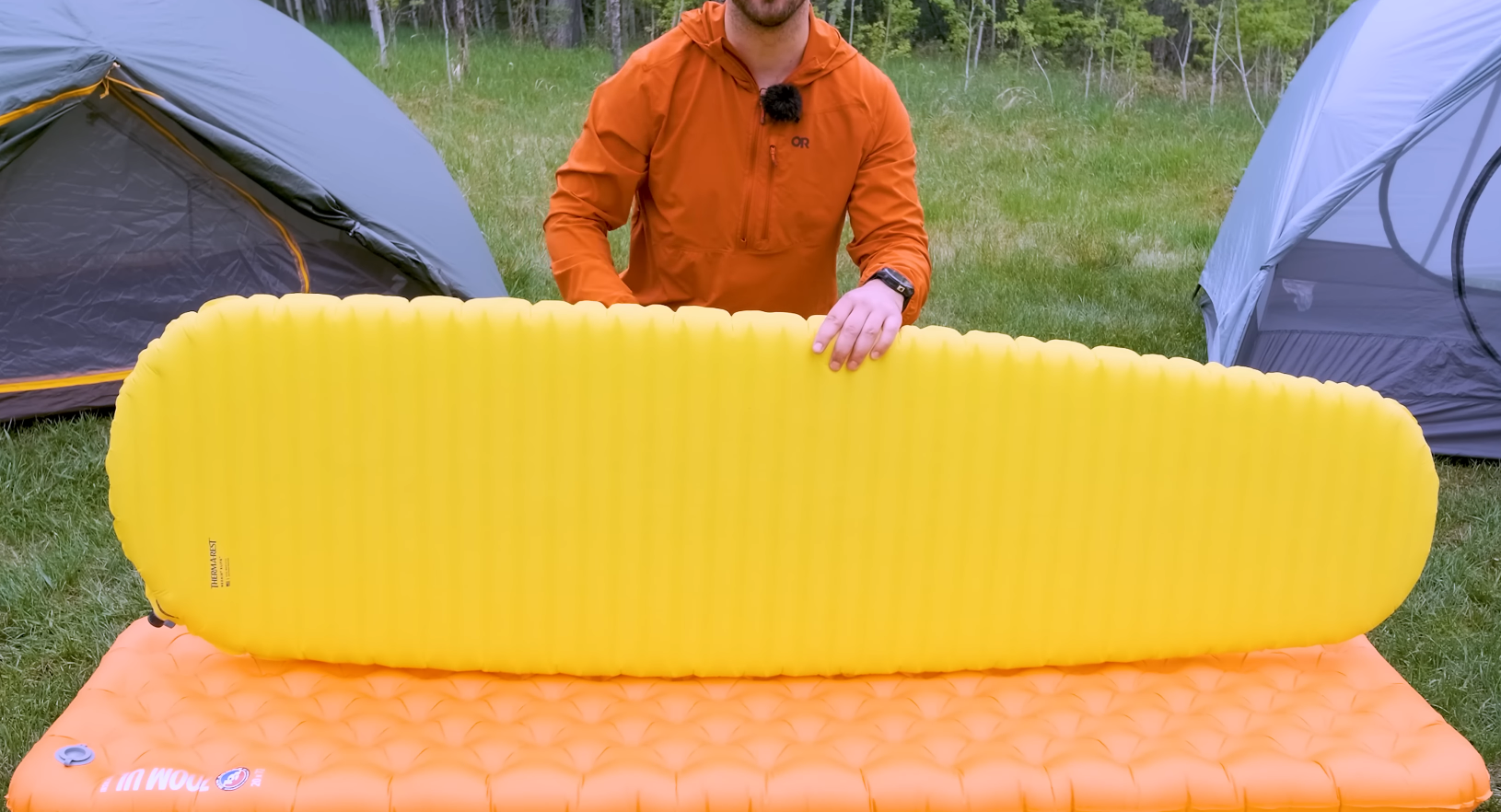
Invest In Sleeping Pads
Sleeping pads are one of the most important elements for getting comfortable sleep in a tent. These mats are designed to provide insulation from the cold ground, as well as cushioning against bumps and unevenness. They come in various shapes and sizes, so it’s easy to find the right one for your needs. Investing in a good sleeping pad can go a long way towards ensuring that you have a restful night’s sleep while camping.
Finally, make sure to choose the right warmth level for your needs by determining how cold it gets in the area you will be camping in. Generally speaking, the thicker and more insulated the sleeping pad is, the warmer it will keep you during colder temperatures. With these tips in mind, you can find a comfortable sleeping pad that fits all your requirements!
Regulate The Temperature
One of the keys to sleeping comfortably in a tent is regulating the temperature inside it. Depending on your climate and season, this can be either too hot or too cold. To regulate the temperature, you’ll need to consider both insulation and ventilation.
In terms of insulation, use heavy blankets for colder weather. In addition, consider using a foam sleeping pad, which provides extra cushioning for greater comfort and also adds some warmth. For warmer climates, use lightweight bedding and open any vents at the top or side of your tent to allow airflow and prevent overheating during the night.
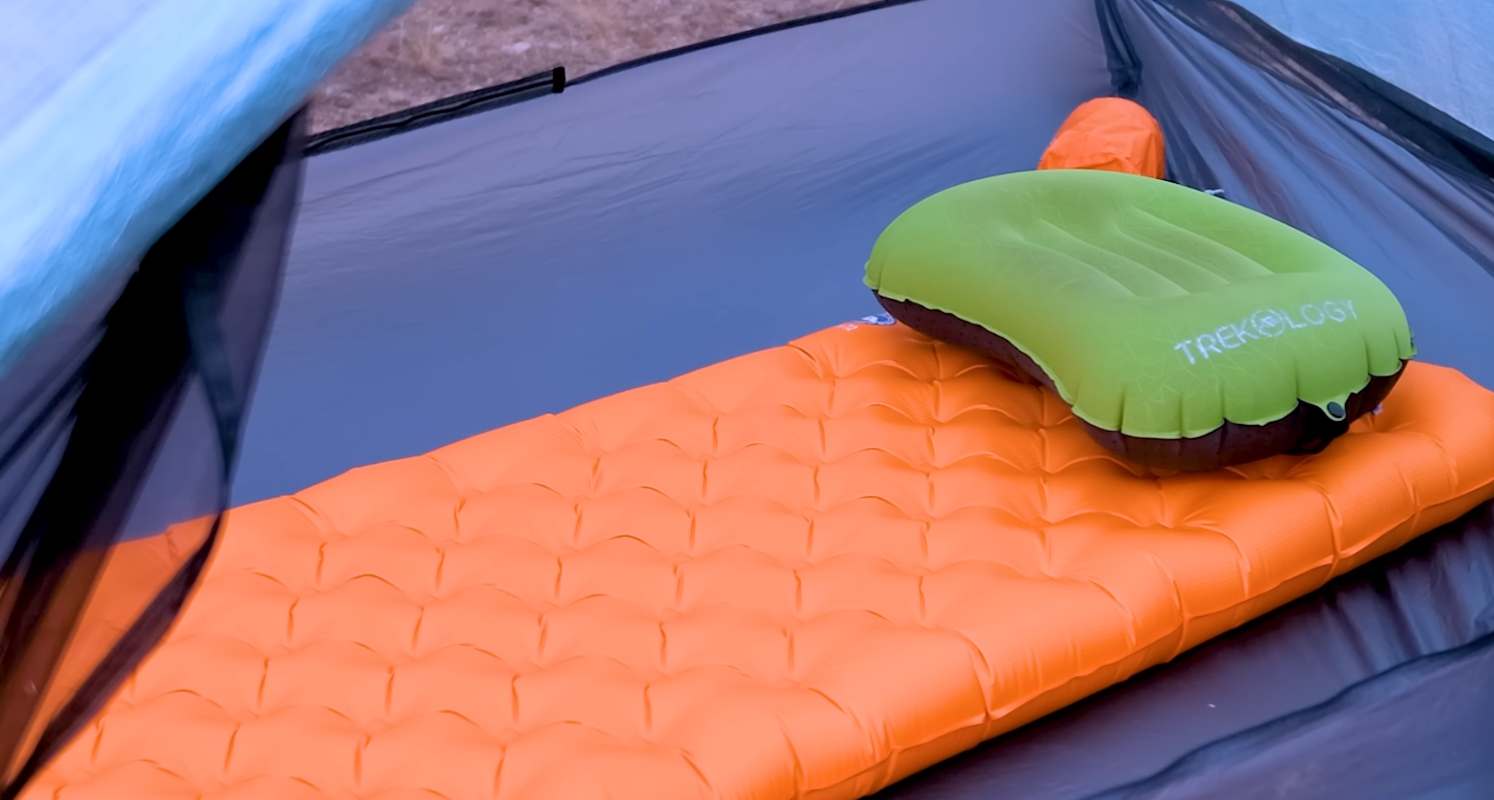
Find The Perfect Sleeping Bag
Finding a comfortable sleeping bag is key to having a good night’s sleep in the tent. You’ll want something that is big enough for you and all your supplies, while still being lightweight and easy to carry around. Look for synthetic or down fill when choosing a sleeping bag — these are typically warmer, lighter, and more durable than other types of insulation. It’s also important to make sure the sleeping bag matches your temperature rating — if it doesn’t, then you may find yourself too hot or too cold during the night.
With a quality sleeping bag, you can be sure that you’ll get the restful sleep your body needs to feel refreshed and ready for whatever adventure awaits tomorrow.
Heat Your Bedchamber!
If you’re planning to sleep in a tent, one of the most comfortable ways to do so is by heating your “bedchamber”. This means that you can bring along blankets and electric heaters to create a cozy environment. Make sure that you use high-quality materials that are designed for outdoor camping. If you don’t have access to electricity, then consider bringing along a self-contained propane heater. This will ensure that your tent stays warm and comfortable throughout the night. Additionally, make sure that all of the flammable materials such as blankets and pillows are safely away from any heat source.
Visit The Bathroom Before You Go To Sleep
Making a last-minute visit to the bathroom can be one of the most uncomfortable parts of camping. Not only do you have to unzip your tent and leave it in the dark, but then you also face navigating your way through a field or forest on foot, all while trying not to make too much noise! To avoid this situation, make sure that you make one last quick trip before bed.
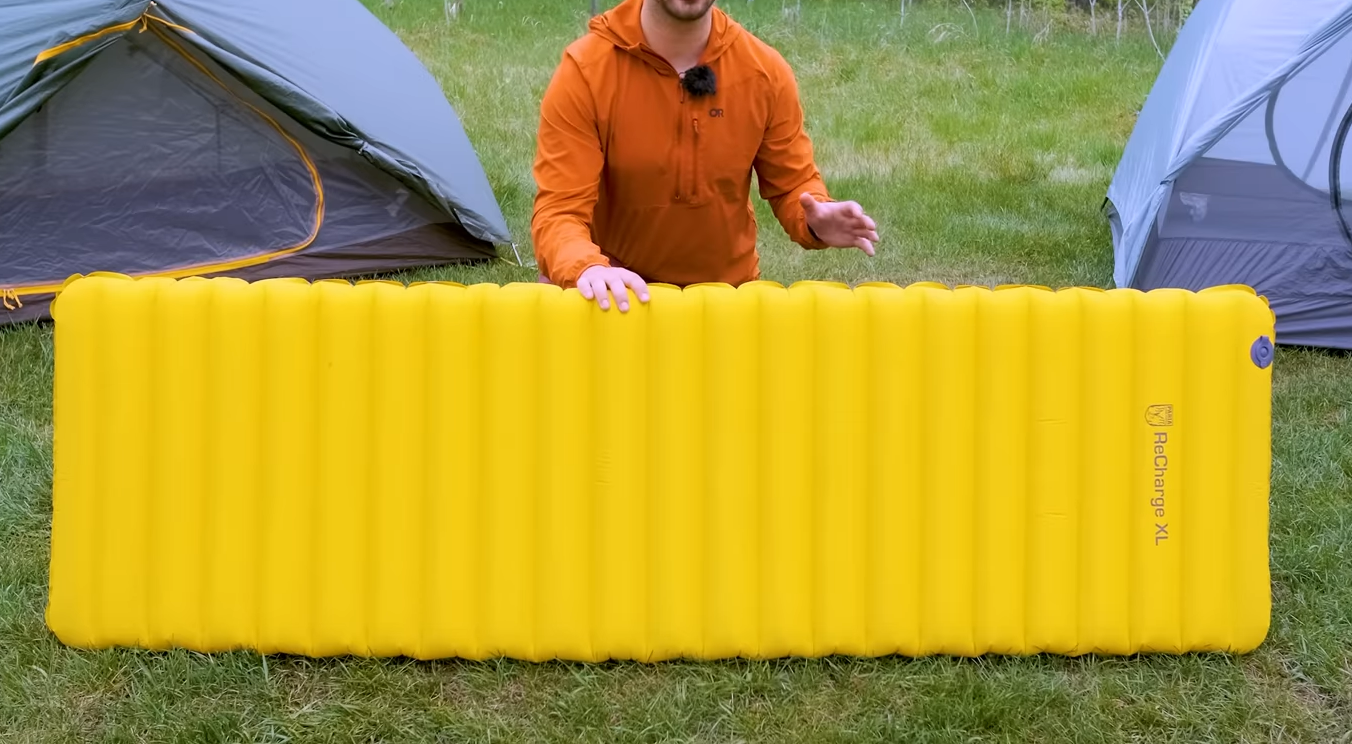
Pack A Portable Cot For Your Baby
If you are camping with a baby, the best way to ensure your little one gets comfortable sleeping in a tent is by bringing along a portable cot. Make sure it fits in the tent and that it’s not too heavy for you to carry around. Also, make sure to orientate the cot so that the baby doesn’t have direct contact with the ground, which could be cold and uncomfortable. To provide extra comfort, add several layers of padding or blankets between them and the bottom of the cot. This will help keep your baby warm and cozy during their sleep. Lastly, don’t forget to bring an all-weather sleeping bag specially made for babies! This will guarantee they stay safe from any unexpected weather changes. [1]
Other Tips and Tricks
No matter what kind of tent you have, there are certain ways you can make the experience inside more comfortable. Here are a few tips and tricks to help you get a good night’s sleep in your tent:
- Bring extra padding or insulation for the ground beneath you. This will provide another layer of cushioning between your body and the hard ground underneath. If possible, bring a large foam pad that covers the entire area within the tent.
- Choose clothing suitable for sleeping in cold weather. Synthetic materials like polyester or fleece work best because they are soft and lightweight but also retain heat well. You should also layer up with multiple pieces of clothing so you can adjust as needed depending on how cold it gets outside.
- If you’re camping in a location with high humidity, be sure to bring a dehumidifier or try using desiccant packs inside your tent to help reduce the moisture levels inside. This will make your sleeping experience much more comfortable and can even prevent any condensation buildup from forming on the walls of your tent.
- Bring earplugs if you’re camping in a busy area where there might be lots of noise throughout the night. Even if you’re not hearing loud music or people shouting, natural elements like animals and wind can be quite disruptive while trying to get some sleep.
Following these tips and tricks should ensure that you have the most comfortable sleep possible in your tent. With that said, don’t forget the basics like making sure you have enough blankets and pillows for everyone in your group!
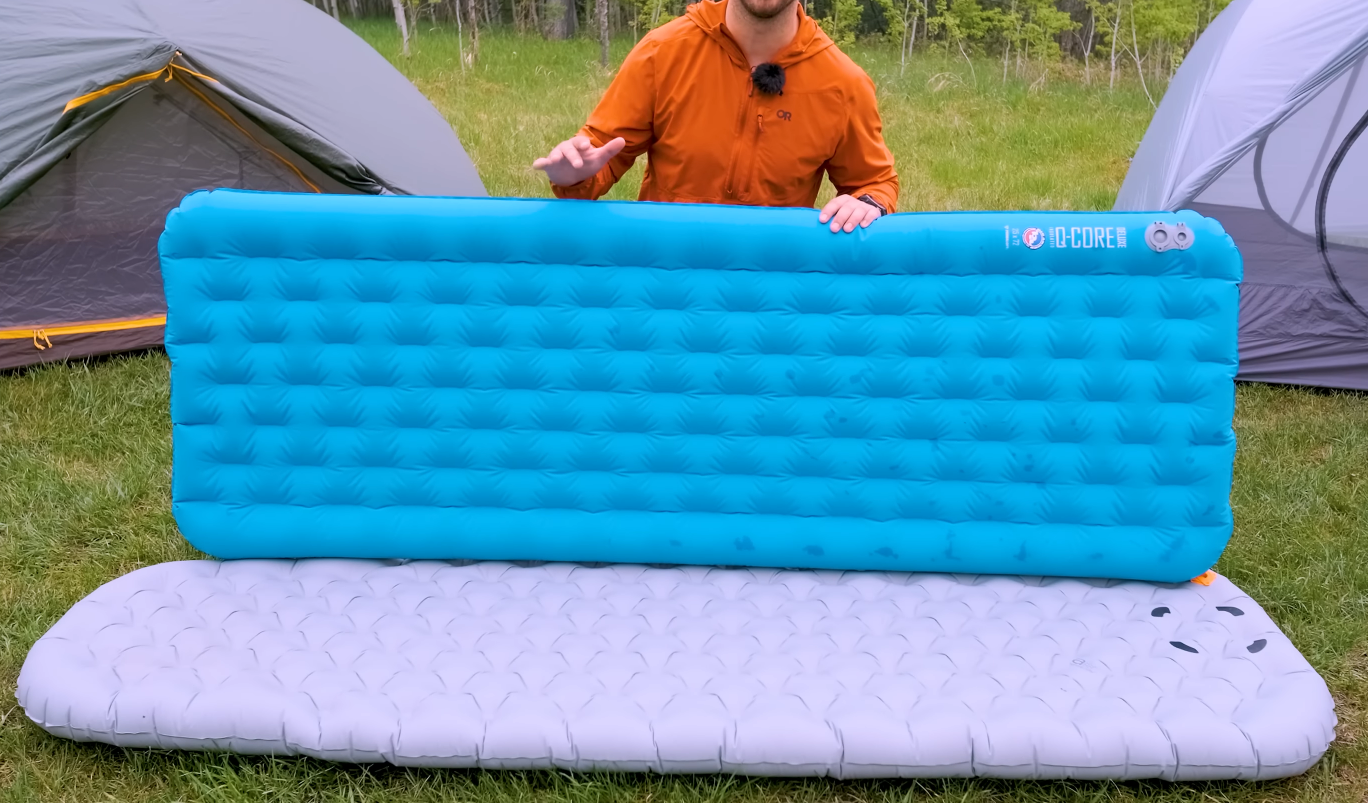
Take care of your gear
Properly taking care of your gear is essential for having a comfortable time in the tent. Make sure to keep all your sleeping materials clean and dry, especially if you are camping in wet weather. It’s also important to have the proper insulation between you and the ground; otherwise, you might end up sleeping on cold surfaces. A good quality air mattress or foam pad can provide plenty of cushioning and warmth. Investing in a good sleeping bag designed specifically for camping is also recommended as it will provide more warmth and comfort than regular blankets.
Use a hot water bottle for extra warmth
A hot water bottle can provide extra warmth on cold nights, giving you a cozy environment in the tent. Consider filling it with warm or boiling water before going to bed and wrapping it tightly in a towel for extra protection. It will keep your toes warm even when the temperature outside drops significantly. Additionally, if you have any sore spots, placing a hot water bottle on them can help relieve the pain and allow you to get some restful sleep.
Bring along earplugs and eye masks
If you’re camping in a remote area, chances are that it won’t be completely silent. Noise from birds or other wildlife can be quite common, as can noise from other campers or human activity. A good pair of earplugs and an eye mask will help to block out all these external noises and distractions so you can get a good night’s rest. Additionally, if you’re sleeping on the ground, using a foam pad or another type of cushioning material can reduce the discomfort from hard surfaces beneath your tent floor. It may also help to bring along a few extra blankets for added warmth on cooler nights. All these little additions will make your tent feel like home and give you more comfortable ways to sleep in a tent!
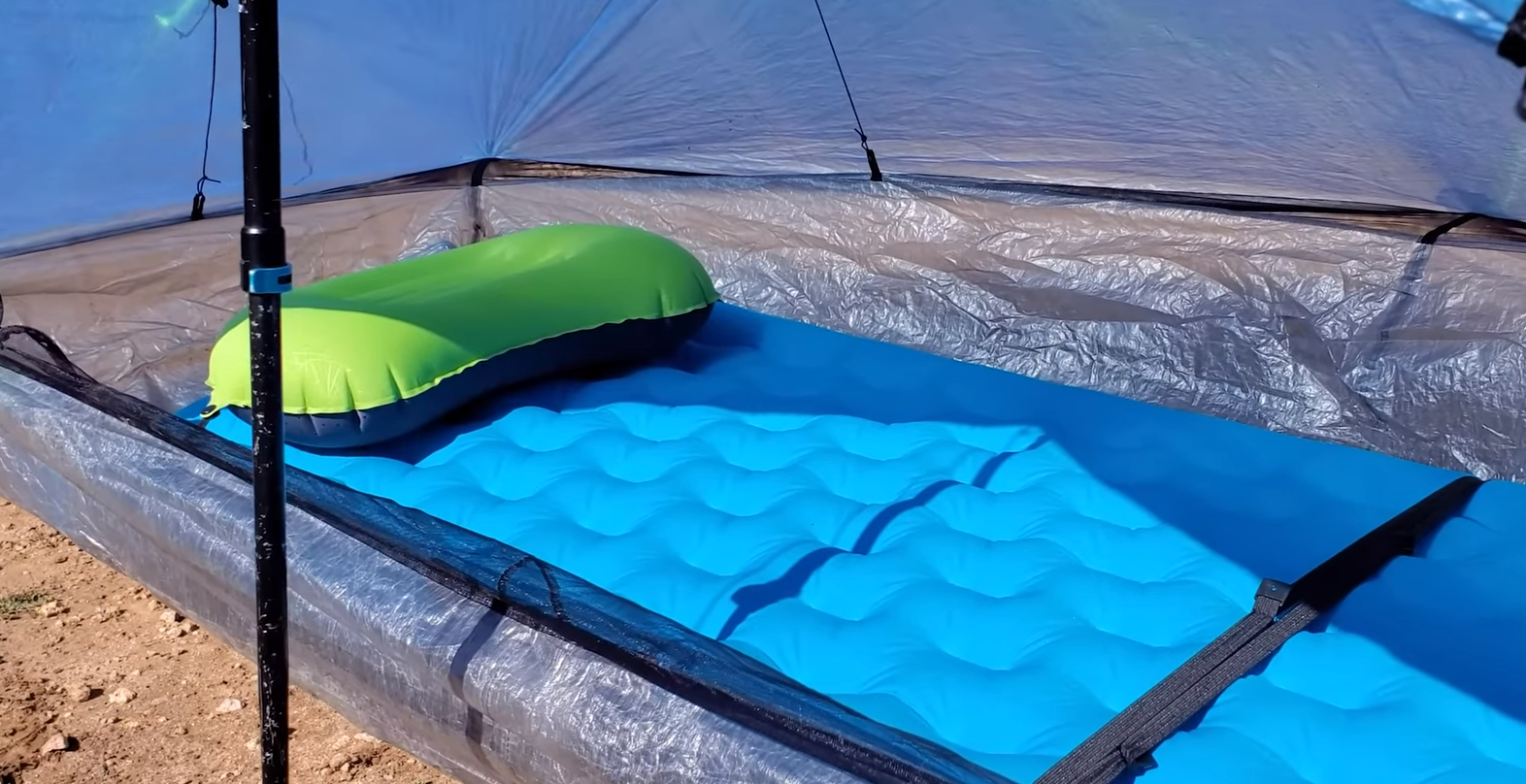
Bring lighting for when it gets dark
When the sun sets, it can be hard to keep up your spirits and stay comfortable when you’re in a tent. You don’t want to be left blindly feeling around for supplies or trying to guess what time of night it is based on how dark it is outside. To avoid this problem, bring along some light sources that can help you see better and provide a sense of security while still being eco-friendly. Headlamps, candles, battery operated lanterns are all great options but make sure they are not fire hazards. Alternatively, you can hang string lights from the inside of your tent to illuminate the area and add a cozy atmosphere! Additionally, having adequate lighting will also help if you have to unzip the tent and search for something in the dark.
When camping outdoors, it’s important to be extra mindful of your actions and take all necessary precautions for a safe and enjoyable trip!
Pack bug spray or mosquito nets
The last thing you want when sleeping in a tent is to wake up covered in mosquito bites. A citronella candle, insect repellent or bug spray can help keep the bugs away. If there are lots of mosquitoes and other insects near your campsite, it might be worth investing in a mosquito net for your tent. This will provide you with extra protection while you sleep so that you can rest comfortably and without interruption. [2]
FAQ
How can I sleep comfortably in a tent?
Sleeping comfortably in a tent is not as difficult as it may seem. Here are some tips to get you started:
- Bring the right gear: Make sure your sleeping bag or pad has sufficient insulation for the weather and terrain. Consider using an air mattress if you want extra comfort. Additionally, bring ear plugs and a sleep mask to block out any noise or light that could otherwise disturb your sleep.
- Choose a level spot: You want to make sure that your tent is on even ground so that your body isn’t contorted uncomfortably while you sleep. If possible, use a tarp underneath your tent to create an additional layer of insulation from the ground and provide a buffer against rocks and roots.
- Get a good night’s rest: Make sure to get as much sleep as possible. If you need to, set an alarm so that you can get up and go to bed at the same time each night. Also, limit caffeine in the evenings and avoid using your phone or laptop before bedtime.
- Keep warm: It is important to keep yourself warm when sleeping in a tent. Wear layers of lightweight clothing and use blankets, comforters, or quilts for added warmth. Additionally, make sure your tent is properly ventilated by keeping the door open but covered with mosquito netting or another material if necessary. [3]
By following these tips, you should be able to enjoy a good night’s rest while camping in a tent. With the right preparation, you’ll be able to get plenty of comfortable and restful sleep!
Can you sleep in a tent without a mattress?
Yes, you can sleep in a tent without a mattress. However, it’s not recommended as it can be very uncomfortable. If you don’t have access to an air mattress or foam pad, bring an extra layer of blankets and/or sleeping bags and place them underneath your sleeping bag to create some cushioning between you and the ground. This will help provide some insulation from cold temperatures too! Another tip is to make sure one end of your tent is slightly higher than the other so that gravity helps you stay comfortable while lying down. Finally, try to use natural materials like leaves or grass for padding if necessary — just make sure they are free of any bugs or critters before using! [4]
Why do I sleep better in a tent?
Sleeping in a tent can be a great way to enjoy the outdoors and get some much needed rest. Not only does sleeping in a tent allow you to feel closer to nature, but it also helps block out noise from other campers or your surroundings. In addition, camping tents provide more ventilation than a regular bedroom, which can help you stay cool during warm nights and decrease humidity levels for better sleep. With proper preparation and planning, sleeping in a tent can be just as comfortable – if not more so – than sleeping at home!
When setting up your tent for the night, make sure that you have an appropriate-sized mattress pad or sleeping bag that fits comfortably within the space of your tent. Additionally, try packing extra blankets or pillows to make the space cozier and more comfortable. If you’re camping with friends, consider packing an air mattress which can be inflated easily with a small pump. Finally, don’t forget to set up your tent away from areas with direct sunlight, as this will help keep the temperature inside your tent cool during hot days.
With these tips in mind, you’re on your way to having a comfortable night’s sleep in a tent! Just remember that proper preparation is key to making sure that you get a good night of rest outdoors.
Is it necessary to wear a Pillow while camping?
Yes, absolutely! A comfortable pillow is a must-have for camping. Not only does it make your sleep more comfortable and help you to get a good night’s rest, but it also prevents neck pain in the morning. It’s best to use an inflatable pillow or one that packs down small so that you don’t take up too much space in your tent. Alternatively, if you have the room, bring a cushion from home as this will provide extra comfort and support while sleeping in a tent. Make sure to put the pillow under the sleeping bag so it stays dry and warm during colder nights. Bring several layers of clothes if necessary; they can be used as an improvised pillow if needed. Finally, consider bringing a sleeping mask, earplugs or headphones if you’re easily disturbed by sound while sleeping. This will help you to get the best quality rest possible during your camping trip. [5]
Useful Video: 2023 BACKPACKING SLEEPING PAD AWARDS
Conclusion
At the end of the day, camping is all about having a good time and making lasting memories. It’s important to ensure you have a comfortable sleep so that you can get as much enjoyment from your trip as possible. With these tips in mind, you should be able to make some simple modifications to your sleeping setup so that it’s comfortable enough to keep you sleeping soundly for hours on end. Don’t forget to bring extra pillows and blankets if necessary, and enjoy your time outdoors! Happy camping!
References:
- https://wildernessredefined.com/most-comfortable-way-to-sleep-in-a-tent/
- https://www.curated.com/journal/11002/the-most-comfortable-way-to-sleep-in-a-tent
- https://www.takethemoutside.com/the-most-comfortable-way-to-sleep-in-a-tent/
- https://decideoutside.com/ways-to-camp-comfortably-without-an-air-mattress/
- https://www.advnture.com/features/do-you-need-a-camping-pillow


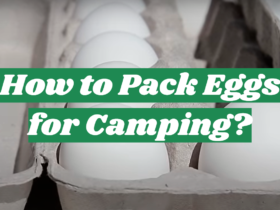

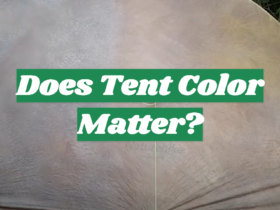
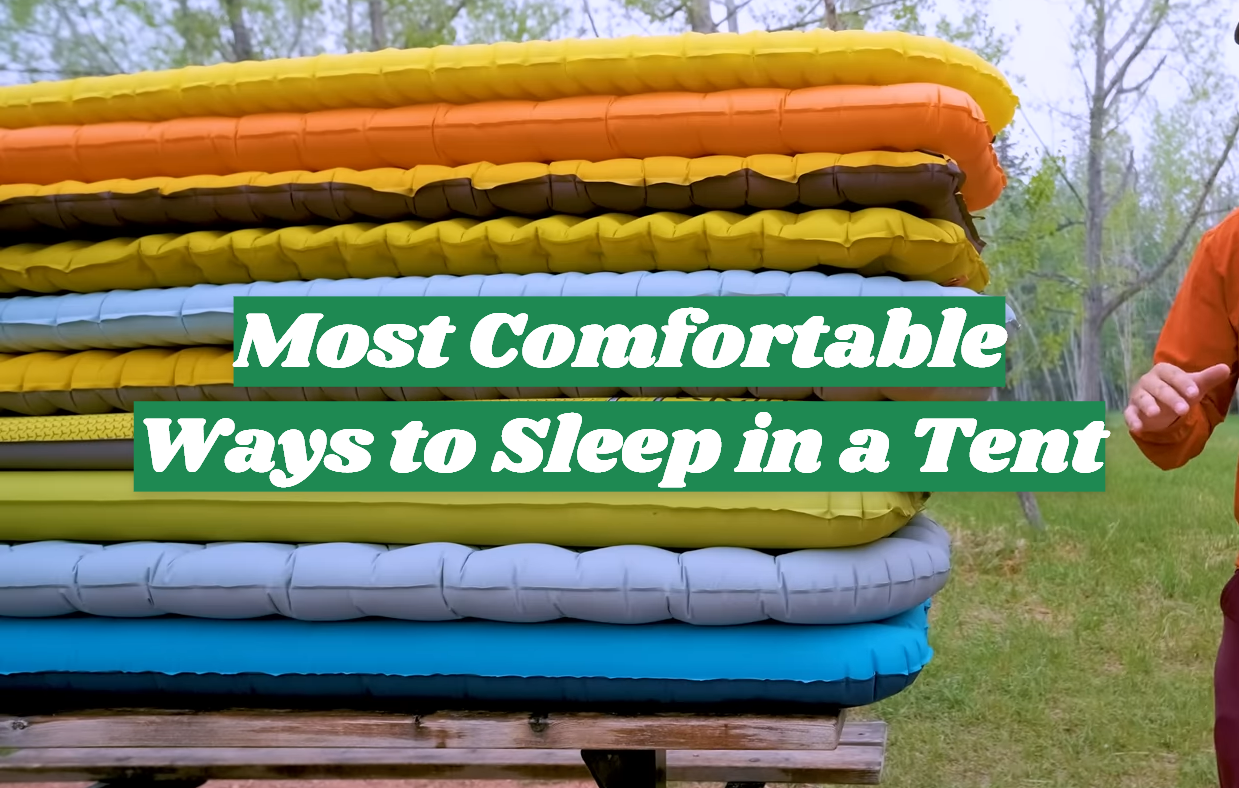

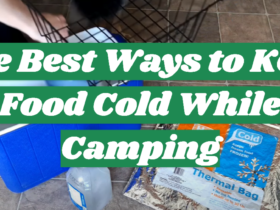
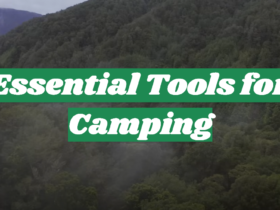
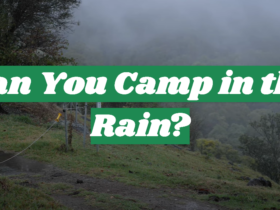
Leave a Review